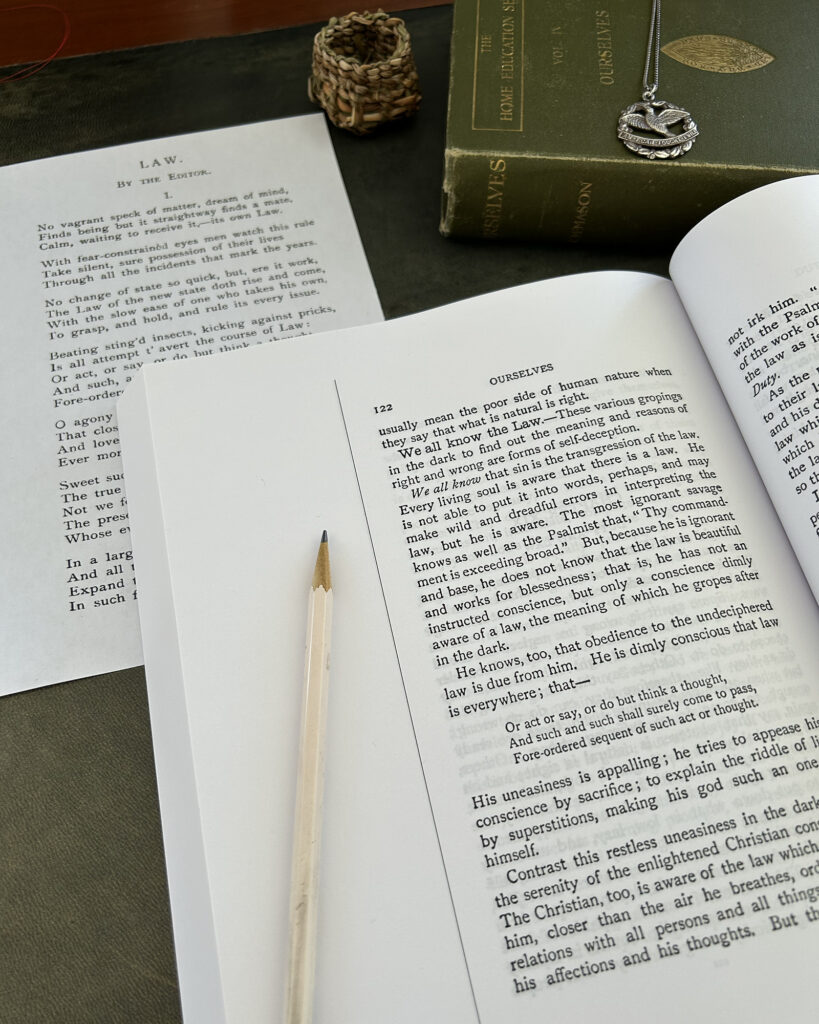CMP Review 2024-10-17
October 17, 2024

One thing all readers of Charlotte Mason’s volumes notice early on is how many times she quotes other writers — and often without a citation. The explanation usually given for this is that she expects her readers to be well-read enough to simply recognize her quotations.
This certainly makes sense when the quotations are from the Bible or the prayer book. Citing chapter and verse might have seemed gratuitous when writing for an audience steeped in Scripture and nurtured in the church.
But I would offer a different explanation for another set of quotes in the volume: humility. Surprisingly, in a couple of places, Charlotte Mason is actually quoting herself.
One example is on p. 122 of Ourselves, Book II. The text flows naturally as she writes, “He knows, too, that obedience to the undeciphered law is due from him. He is dimly conscious that law is everywhere; that—“ Then we find an indented quotation, three lines of verse:
Or act or say, or do but think a thought,
And such and such shall surely come to pass,
Fore-ordered sequent of such act or thought.
It turns out that these three lines are from a poem written by Miss Mason herself. The poem is called “Law” and is the seventh poem in an “old notebook” that Essex Cholmondeley says dates back to when Mason was in her 20s.
“Law” seems to have been first published in the January 1904 Parents’ Review. When Ourselves was published the following year, Mason was citing her own poem. A revised form of the poem appeared in 1908 in volume II of The Saviour of the World making the source of the quotation more difficult to identify.
We’ve transcribed the original version of the poem. If you’re reading Ourselves and someone asks you about p. 122, now you can point them here.
@artmiddlekauff